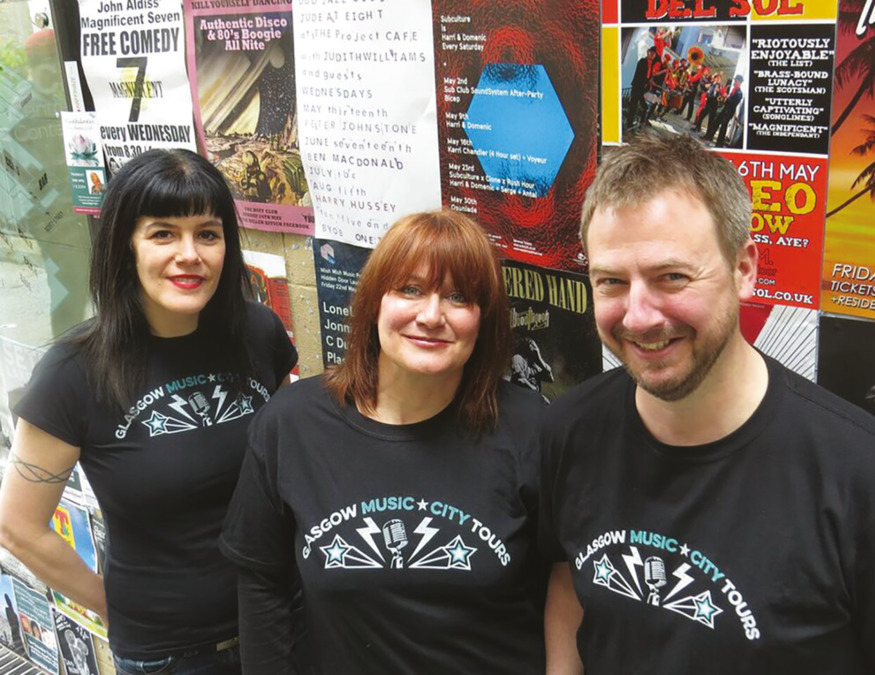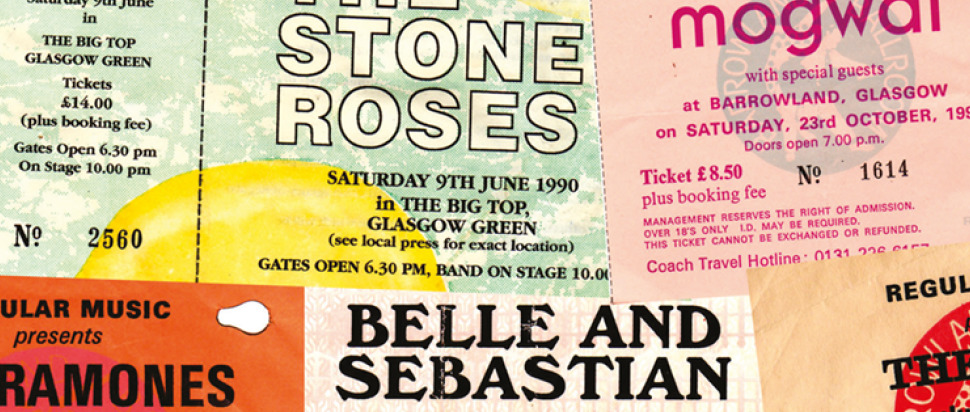Fiona Shepherd on charting Glasgow's musical history
The day before Glasgow's Greatest Hits lands in bookshops across the country, we catch up with one of its authors Fiona Shepherd to talk all things Glasgow music
I sit down to chat to Fiona Shepherd on hallowed ground. We meet in Mono, the cafe and bar home to Monorail, the legendary record shop where lucky punters might be able to buy a Pastels album from the actual Stephen Pastel. Shepherd, one third of the team behind Glasgow’s Greatest Hits, is perhaps better known as the rock and pop critic at The Scotsman – no pressure then. On the way down I read her glowing review of Iggy Pop’s gig earlier in the week at the Academy. I wonder if she'd also caught Morrissey, who played a sold out show the following night? “Oh no,” laughs Shepherd, “I went to see Lionel Richie!”
It’s a perfect example of the breadth of musical life which Glasgow has to offer, but also of the approach that Shepherd, alongside co-authors Alison Stroak and Jonathan Trew, have taken to the book. It’s a celebration of every aspect of Glasgow musical life. One minute it’s a look at Gerry Cinnamon and The Jesus and Mary Chain, while the next page brings a deep dive into the Sub Club and Sydney Devine. With so much material to cover, how tough were the arguments about who made the cut and who missed out?
“Oh, that was easy,” jokes Shepherd, “we just had a wrestling bout any time we disagreed, and the winner got their way. I think we were quite united, and of course, we had to be selective, and we had to be opinionated. It’s impossible to cover every single aspect of Glasgow music in 144 pages. So, it’s about people, places, gigs. There were the big names that we knew we had to cover, but we wanted to make space for some of the quirkier characters as well.”
So, what are Glasgow’s greatest hits? I ask Shepherd the question every pundit dreads. Push comes to shove, what are the bands, the albums, the gigs, that define Glasgow? Shepherd is keen to stress that the Glasgow music scene defies easy archetypes, and it’s a question we start to answer by thinking about albums which don’t fit the bill. I suggest to Shepherd that Screamadelica, for example, isn’t really a record that makes the Glasgow list?
“Oh no, that’s a Brighton album. That could never have been made unless Primal Scream had been to the Zap Club. But I think for me the album that really reflects the spirit of Glasgow is Tigermilk by Belle & Sebastian. An absolute classic, from a band that didn’t quite fit in to any scene. They were almost a reaction to all the grungy stuff happening in the early 90s. The band had that outsider approach – more about authenticity than success – that made them seem as much a cult as a pop group.”

Glasgow's Greatest Hits' authors – Fiona Shepherd, Alison Stroak + Jonathan Trew
And when it comes to the band that defines Glasgow, Shepherd is unequivocal. “It has to be Simple Minds. Their transition through the years from this arty, aspirational band, looking to Europe as much as London, through to the absolute anthem of Waterfront – that sums up Glasgow to me. When they play, there’s just something special between the fans in Glasgow and the band. And I’d choose my all-time Glasgow gig for the same reason: Blur at King Tut's in July 1990. Seeing this band, three months before the release of their first single, treat the 40-odd attendees as if they were playing to 40,000 people was an incredible moment. And that’s the beauty of Glasgow. It’s not that difficult to be in the right place at the right time, watching an unknown band who go on to be the next big thing.”
The new book has grown out of the Glasgow City Music Tours which Shepherd, Stroak, and Trew have been running for ten years. Are there regular questions that visitors to Glasgow pose? “We’re lucky to get a mix of visitors and locals on the tour. For many people, it’s all about the Apollo. And we’re giving people permission to access their memories, seeing incredible bands over the years. It’s about seeing music as part of the fabric of social history. It’s about more than gigs or records, it’s living history.”
And what of the future? Will we see further editions of the book as the next generation of acts break through? Shepherd seems hopeful but sceptical. “I think my message to 21st century bands would be – you need to up your game. Where are the stories about the next wave of legendary Glasgow acts? It seems to be more difficult to find stories from recent years, even though there are incredible subcultures – just look at corto.alto and the underground jazz scene in the city.”
Glasgow remains a musical melting pot, with venues, new bands, and record shops everywhere. This new book offers a perfect taster for the casual fan, and a deep dive for the avid gig-goer.
Glasgow's Greatest Hits is out now with Polygon
